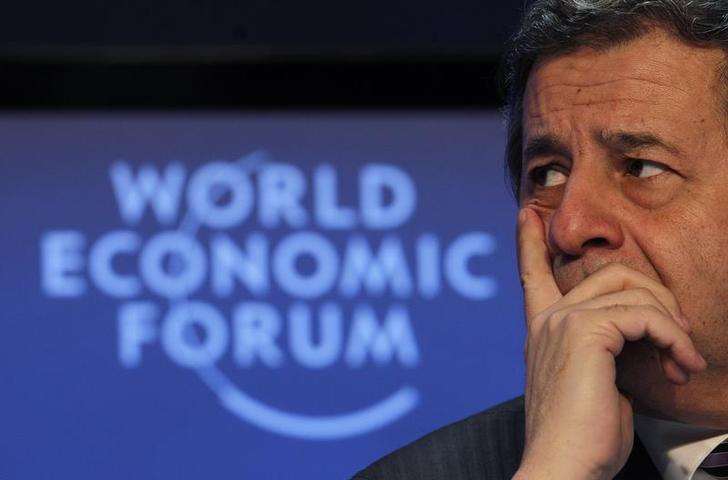Latest NEWS
- Aswat Masriya, the last word
- Roundup of Egypt's press headlines on March 15, 2017
- Roundup of Egypt's press headlines on March 14, 2017
- Former Egyptian President Hosni Mubarak to be released: lawyer
- Roundup of Egypt's press headlines on March 13, 2017
- Egypt's capital set to grow by half a million in 2017
- Egypt's wheat reserves to double with start of harvest -supply min
- Roundup of Egypt's press headlines on March 12, 2017
Swiss say working with Egypt, Ukraine to recover stolen assets

Egyptian Minister of Trade and Industry Rachid Rachid attends a session at the World Economic Forum (WEF) in Davos, January 30, 2010. REUTERS/Christian Hartmann
By Stephanie Nebehay
GENEVA, June 4 (Reuters) - Switzerland is working hard to prevent ill-gotten assets of corrupt leaders from reaching Swiss bank coffers and an international clampdown on tax evasion could help the campaign, a senior Swiss foreign ministry official said on Wednesday.
Swiss authorities are already working closely with Egyptian counterparts on recovering nearly 700 million Swiss francs ($781.51 million) stashed by former Egyptian President Hosni Mubarak and aides, said Valentin Zellweger, director of the foreign ministry's international public law department.
The Alpine nation has also frozen 170 million Swiss francs ($189.8 million) linked to former Ukraine president Viktor Yanukovich and clan, the Swiss federal prosecutor's office said.
"We don't act only when they lose power. There is a whole legal arsenal to avoid that money comes to the Swiss financial centre," Zellweger told a briefing at the Swiss Press Club.
"There are preventive measures, every 'politically-exposed person' goes through an extremely deep examination. In Switzerland, a bank's board member must give the green light to open an account and it is reviewed every year," he said.
"There is an arsenal to minimise the risk of money derived from corruption. I think that the system works pretty well. We take care of cases that fall between the cracks."
Swiss banks are doing their due diligence, Zellweger said.
"If someone comes with several millions, banks are required to look into the origin of these funds. I think that a lot has happened over the years and that banks are much more sophisticated in their detection of doubtful funds."
Switzerland has a long history of confiscating illicit funds deposited by strongmen, starting with former Philippines president Fernand Marcos in 1986, followed by Haiti's Jean-Claude Duvalier, Nigeria's Sani Abacha and Zaire's Sese Seko Mobutu. But it takes years, even decades to pay back the funds.
Swiss authorities froze funds linked to former Tunisian president Ben Ali and Egypt's Mubarak within hours of the two longtime autocrats being chased from power in 2011.
A further 130 million Swiss francs tied to top Syrian officials and companies have been frozen but there is little prospect of winning cooperation with the current Assad government to resolve the matter, Zellweger said.
Switzerland was working to return $40 million of the $60 million owed to Tunisia, as a first step. "The money of Ben Ali and his entourage could be resolved after 4 years, including the appeal time, which would be a record and shows that these efforts to accelerate things bear fruit," said Zellweger.
Switzerland and other financial centres have come under growing pressure from the United States and other countries to clamp down on tax cheats via automatic exchanges of information.
"A greater exchange of information can contribute to resolving the problem of illicit funds," Zellweger said. ($1 = 0.8957 Swiss Francs) (Editing by Mark Heinrich)










